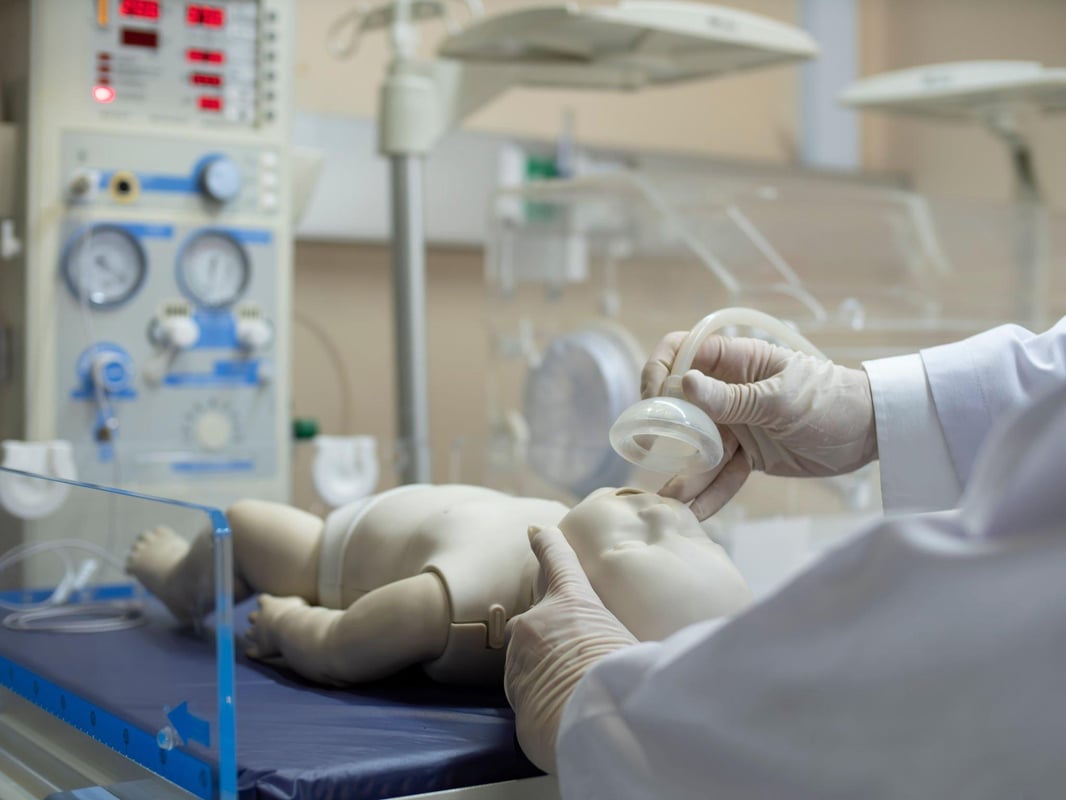
Financial aid (may be available)

Financial aid (may be available)

Financial aid (may be available)

Financial aid (may be available)
$276 total
$2,075 total
$270 total
$410 total
$365 total
$150 total
No cost info
$285 total
$150 total
No cost info
Welcome to the world of Pediatric Advanced Life Support (PALS), a critical field that specializes in providing emergency care to infants and children. If you are in Knoxville and are considering a career in this rewarding field, then you've come to the right place. This comprehensive guide will walk you through everything you need to know about PALS classes available in Knoxville, from understanding what PALS is and the training requirements, to what you can expect from the classes, and how to find related job opportunities.

Pediatric Advanced Life Support is a clinical intervention protocol developed by the American Heart Association (AHA) for the urgent treatment of children experiencing life-threatening emergencies such as cardiac arrest, respiratory failure, or shock. PALS training equips healthcare professionals with the skills and knowledge they need to promptly recognize and respond to these critical situations.
PALS training is an advanced course that typically requires prior medical knowledge and some specific prerequisites:
A background in healthcare: Nurses, paramedics, doctors, and other healthcare professionals are typically the ones who undertake PALS training.
Basic Life Support (BLS) Certification: This ensures that all PALS trainees have the fundamental skills required to save lives.
Basic understanding of EKG interpretation: Since PALS often deals with cardiac emergencies, understanding EKGs is essential.
When choosing a PALS class, consider the following factors:
Certification: Make sure the course is accredited by a recognized institution, such as the AHA.
Course Content: The course should cover all aspects of the PALS protocol, including airway management, vascular access, effective resuscitation, and post-resuscitation care.
Experienced Instructors: The instructors should have real-life experience in pediatric emergencies and be able to provide hands-on training.
Class Size: Smaller class sizes can provide more personalized instruction and better opportunities to practice skills.
Day-to-day PALS classes vary based on the course structure, but you can generally expect:
Theoretical Instruction: This may include lectures, discussions, and multimedia presentations to understand the PALS protocol.
Practical Training: You will get hands-on training in simulated pediatric emergencies.
Assessment: Regular assessments will track your progress and help reinforce learning.
The PALS certification process typically includes:
Course Completion: You must attend all classes and complete all course requirements.
Written Examination: You will need to pass a written test demonstrating your theoretical knowledge.
Skills Assessment: A practical test will assess your ability to apply PALS protocols in simulated emergency scenarios.
Certification: Once you pass all examinations, you will receive a PALS certification, valid for two years.
Once you have your PALS certification, you can look for related jobs in settings such as hospitals, emergency medical services, and pediatric clinics. Useful resources for job hunting include online job portals, professional networking sites, and local healthcare institutions' websites. Dreambound is a great platform to explore vocational training programs and find job opportunities in the healthcare sector.
After obtaining your PALS certification, you can consider taking additional courses to expand your skills and knowledge. These could include:
Advanced Cardiac Life Support (ACLS): This course is similar to PALS but focuses on adult patients.
Neonatal Resuscitation Program (NRP): This program trains you in the management of newborns at the time of birth.
PALS certification can be a valuable addition to your professional qualifications. It can:
Enhance your resume: Having PALS certification demonstrates your commitment to professional development and your ability to handle pediatric emergencies.
Increase job opportunities: Many healthcare institutions prefer or require PALS certification for certain roles.
Improve patient outcomes: The skills learned in PALS can help you provide effective emergency care, potentially saving lives.
If you are a healthcare professional, PALS certification can complement your existing skills. For instance:
If you're a nurse, PALS can enhance your pediatric nursing skills.
If you're an EMT, PALS can enhance your emergency response capabilities for pediatric patients.
If you're a physician, PALS can enhance your ability to manage pediatric emergencies.
Your PALS certification is valid for two years. To maintain your certification, you will need to take a PALS renewal course before your current certification expires. This course will refresh your knowledge and skills and ensure you are up-to-date with the latest PALS protocols.
PALS is a critical skill set for any healthcare professional dealing with pediatric patients. If you are in Knoxville and considering taking a PALS course, this guide should provide you with a clear roadmap. Remember, the right training is crucial to your success in this field. So, do your research, choose the right course, and get ready to make a difference in the lives of the patients you serve.
, Phlebotomist, Pharmacy Technician, and Medical Office Specialist.
For those looking to get started in this field, Dreambound's array of city-specific guides can be a valuable resource. And if you're in a different area or mulling over a move, don't miss out on our other helpful guides.
Contemplating a transition in your career or exploring various professional paths? Dreambound has written comprehensive guides on nearly every type of program to aid you in your decision.
Dreambound's platform allows prospective students to find the right educational program for them through searching, filtering, and connecting with our extensive selection of career & technical education partners.
Dreambound has over 70 programs across healthcare, technology, business, and industrial trades. This includes programs such as Medical Billing, Cybersecurity, and welding.
Some of our schools offer financial aid for those who qualify. Many others offer payment plans, where you can pay the cost of class over time.
Yes, Dreambound offers many online programs. On Dreambound's search, you can filter by online, in-person, and hybrid (part online, part in-person).
Dreambound is completely free for you to use! We are supported by schools and organizations who pay to advertise on our website, so we can offer all of our career resources for free.